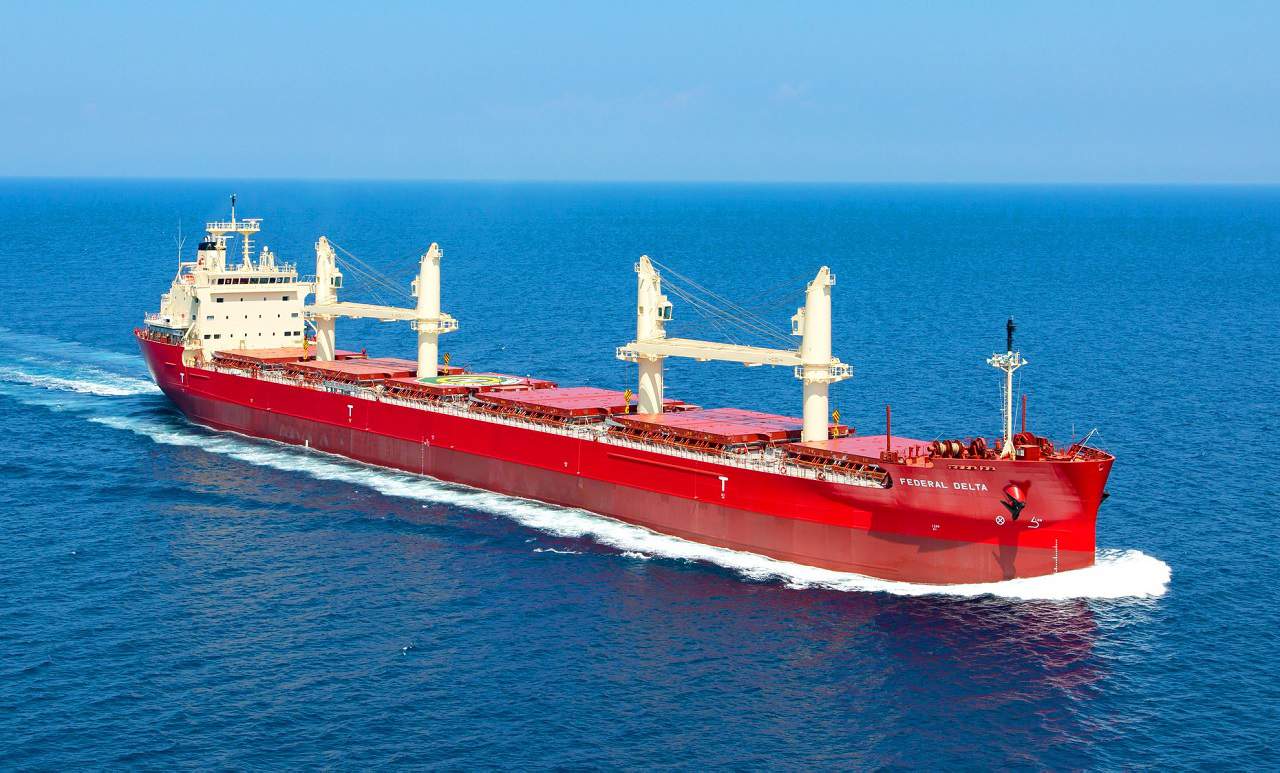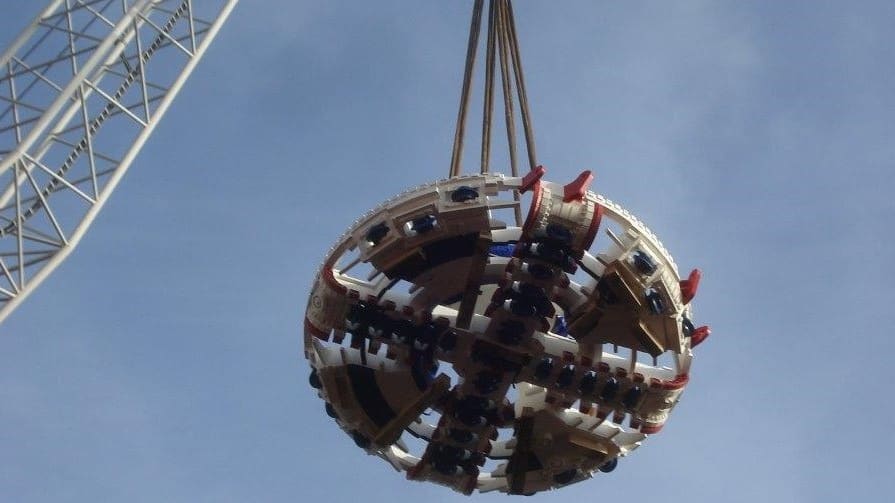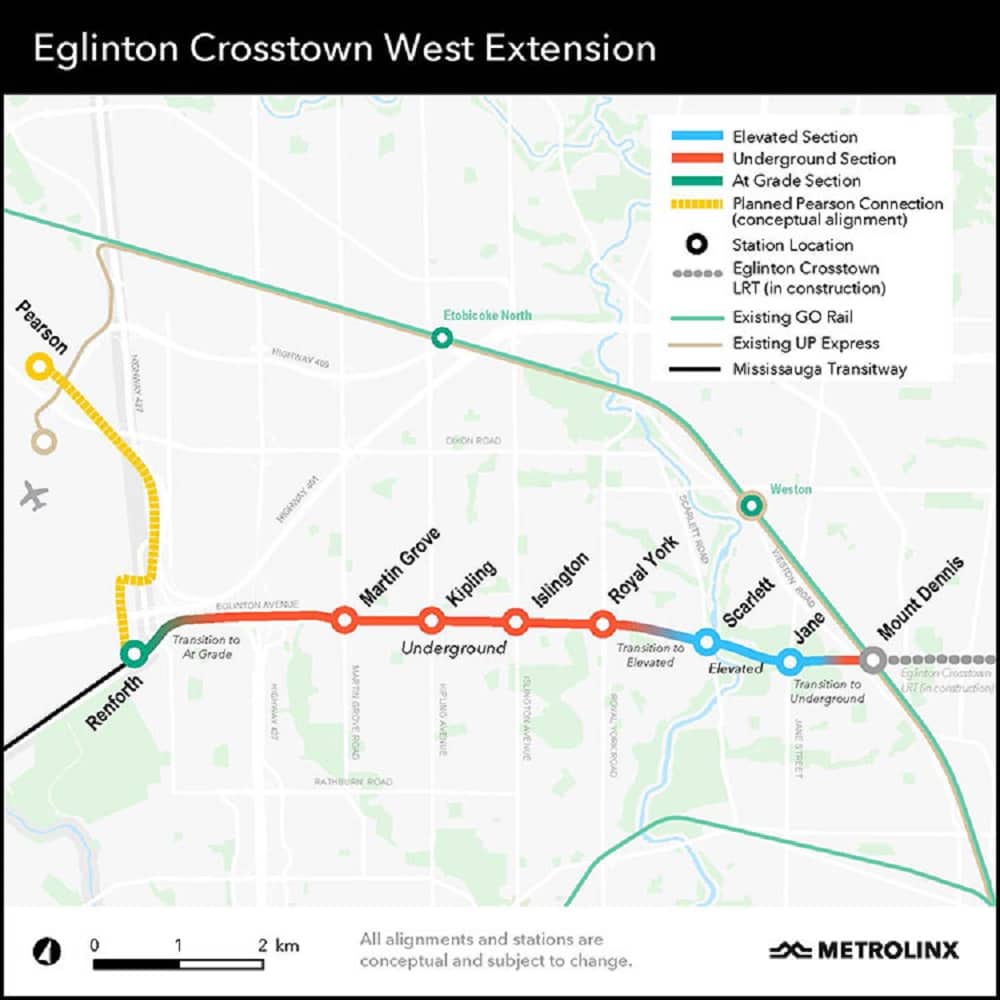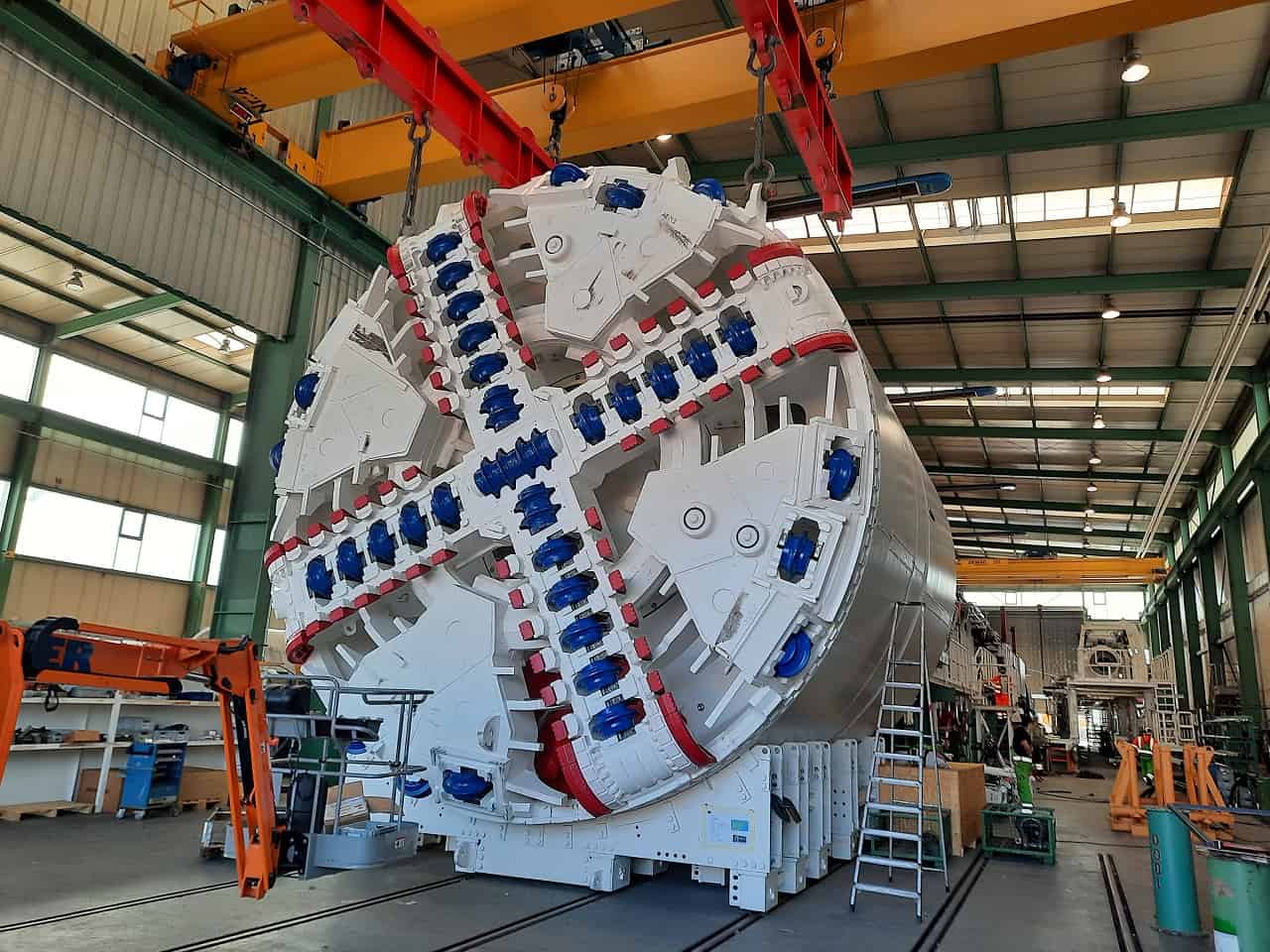‘Big diggers’ make voyage across the Atlantic to Mississauga for crucial light rail transit work
Published December 9, 2021 at 3:29 pm

(Update: This story has been updated to include a more specific arrival time of the ship in Canada)
The two huge machines that will dig the tunnels to extend a light rail transit (LRT) route into Mississauga from Toronto are now on the high seas and bound for Canada via a cross-Atlantic journey of some 11,000 kilometres.
The tunnel boring machines (TBM) were built in Germany and are expected to arrive any day now at the Mississauga worksite of the Eglinton Crosstown West Extension (ECWE), via Hamilton. Once there, they’ll be reassembled and next spring will begin digging out the 9.2 -kilometre route that will bring the Eglinton Crosstown LRT from Toronto west to Renforth Dr. in Mississauga by 2030-31.
In the meantime, work crews have been busy prepping the Renforth Dr./Eglinton Ave. W. area site in Mississauga for the arrival of the TBMs.

One of the cutterheads, part of the tunnel boring machines, is lowered onto a cargo ship in Germany. (Photo: Metrolinx)
Earlier this week, Metrolinx, the provincial transit agency that’s overseeing the huge project, and Infrastructure Ontario began the search for a team that will design, build and finance the tunnels that will run between Jane St. and the future Mount Dennis Station at the eastern end of the ECWE.
Also, a proposal to extend the ECWE an additional 4.7 kilometres from Renforth Dr. to Pearson Airport in Mississauga is one step closer to reality after the Ontario government recently reaffirmed its support for the plan.
The TBMs, aka “big diggers,” were dismantled in Germany and packed into 14 shipping containers for their voyage aboard cargo ship Federal Delta.
The trip began on Nov. 20, with the ship navigating the riverways first to Kehl, Germany and then onto Antwerp, Belgium, where the huge cargo ship set out into the Atlantic.

Metrolinx officials say the cutterheads of the TBMs, found at the front of the tunnel diggers, make the journey in one piece. They contain disc cutters that rotate at high speeds to loosen rock and soil.
Each cutterhead weighs about 65 tonnes and the two components are laid down on a flatbed on the bridge of the ship to make the long trip.
All told, the cargo ship will travel 11,112 kilometres before arriving at a Hamilton port on Lake Ontario in the coming days. From there, the TBMs will be transported by truck to the Renforth Dr./Commerce Blvd. site in Mississauga, near Eglinton Ave.
There, they’ll be reassembled and lowered into the ground in the spring to begin work digging the two tunnels.
Metrolinx says the TBMs will dig tunnels with an internal diameter of 5.75 metres—big enough for an adult African Bush Elephant, the largest land mammal in the world, to walk through comfortably.
The extended LRT route from Toronto to Renforth Dr., which will include seven passenger stops and an estimated 37,000 daily boardings, will run mainly underground, helping to reduce travel times and improve access to jobs, schools and other destinations across the GTA, Metrolinx says.

One of the tunnel boring machines at assembly plant in Germany before being disassembled for the trip to Canada. (Photo: Metrolinx)
If the route is extended to Pearson Airport, as many as three stops would be added between Renforth Dr. and Pearson.
Metrolinx is working with Infrastructure Ontario to complete the huge project in the next nine or 10 years.
When completed, the extended route will offer convenient links to destinations throughout the region via UP Express and Kitchener line GO train service, TTC bus services at all stops in Toronto, and MiWay and GO bus services via the Mississauga Transitway at Renforth Dr.
INsauga's Editorial Standards and Policies



